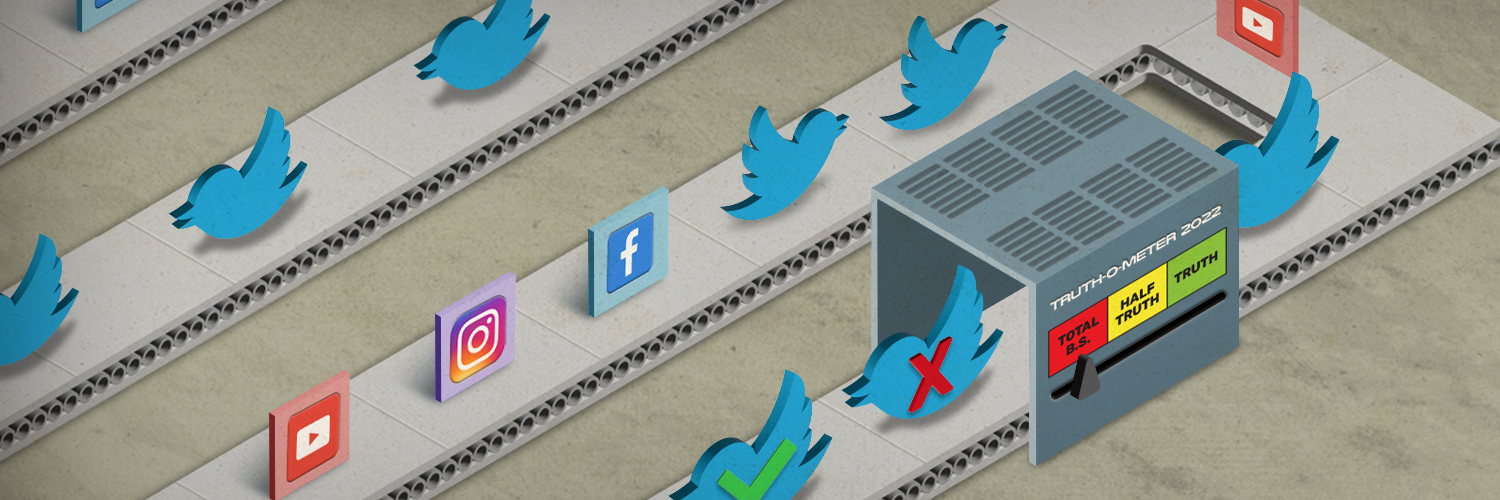
As the 2020 U.S. presidential election approaches, many are concerned about Russian hackers. I’m much more concerned about the content ethics of America’s (and the world’s) largest social media platforms and publishers being hacked. Who needs Russian enemies when our own content sources repeatedly break our trust?
This matters for much more than the election, though that alone is huge. Eight in 10 Americans today go online daily and use content to inform everything from restaurant choices to health choices. Many of us turn to online content to inform minor and major life decisions ranging from who to date to how to invest. But much of it we can’t trust.
How did this happen? The answer isn’t simple, but I believe considering the why helps us figure out what to do about it. Let’s explore five factors.
1. A lack of ethics in dealing with paid content
One reason is lack of ethics over disclosing when content is paid. Take the recent debacle with Teen Vogue and Facebook. One of the world’s largest publishers (Condé Nast) and the world’s most powerful social media platform tried to publish sponsored content as editorial content. That means they tried to publish an ad that looked like a glowing article. This snafu is at best sloppy and at worst deceiving. And we can’t afford either scenario when people rely so much on digital content.
More concerning, Facebook will be the main platform for online political advertising in the 2020 U.S. election. We know from investigations into the 2016 election that people were fooled by political ads deceptively designed to look like news headlines. Especially on Facebook and Instagram. Yet, we’re still trusting Facebook, a company that just tried to publish an ad as editorial content, with doing it better this time? Have you seen those Bloomberg memes?
2. A problem with policing objectionable content
My hunch, given that Facebook leadership were well prepared to promote the article on social media, is Teen Vogue was pressured to publish the ad like an article. And that leads us to the second reason trust in content is under attack. So-called disruptive online business models promoted as freeing information and voices have made content quality and governance seem too expensive, which has many consequences, but I’ll highlight one. Fact checking and editorial judgment fall by the wayside. Even Facebook complains about its ability to monitor objectionable content, from violence to vaccination conspiracies, but has since made progress. And publishers have lost talent who care about quality, such as Deadspin losing the majority of its content workers when the private equity firm that took it over insisted on questionable editorial judgment.
3. An end to the FCC fairness doctrine
So, let’s turn to a third main reason we’re in this content credibility mess: Removal of the FCC fairness doctrine that requires news to show more than one perspective, especially on controversial issues. The end of this doctrine led over time to a confusing merge between news and opinion about that news into wild extremism with blatant lies—and then making money on that extremism. Fox News, with the tagline “fair and balanced” ironically ripped from the fairness doctrine, might come to mind. However, this conflation happens not only on television but also on podcasts, such as Breitbart News, and on Google’s YouTube influencer channels. And on Twitter, recent research has found those Russian bots fraudulently spewing extremist one-sided American views were far more active in the 2016 election than first believed.
4. The rise of content marketing
We have a fourth reason trusting online content is complicated. Content marketing, or brands publishing content directly, has grown into a multibillion-dollar industry over the past 10 years as traditional advertising has proven ineffective online and marketers feel Google search engine optimization pressure. Done well, content marketing results in useful or entertaining content for customers who seek it. Take a look at educational resources by REI and The Home Depot and documentaries by REI and Mailchimp. Done poorly, content marketing results in quantity over quality. At one time, for example, Intel had 12,500 website pages, 715 microsites with more pages, and 324 social handles (which Intel has since cleaned up). Poor content marketing clogs search results and makes finding quality content harder.
5. The slow pace of digital literacy
Exasperating these four reasons is America’s shockingly low digital literacy. Pew Research found most American adults could not answer even half the questions on a 10-question digital literacy quiz correctly. Americans are not prepared to use and interpret the content on which they want to rely.
Toward a solution
How do we restore and scale truth in content? The good news is a long-term solution isn’t a mystery. Content strategy, intelligence, operations, and governance lead us from content chaos to content quality, credibility, and effectiveness. And that achieves business results. I’ve talked about hundreds of examples over the years, and I’m enthused about other new examples, such as old media The New York Times and new media The Information each winning on their subscription models. Even Georgia Technology Authority is successfully streamlining content to focus on state services for citizens.
And when it comes to governance of anything, including content, sometimes the only thing that works is an actual law from the actual government. The hole left by the FCC fairness doctrine needs patching. I’m encouraged by the U.S. Federal Trade Commission actively weighing in on issues such as influencer content and branded content (native advertising). Data privacy laws such as GDPR and CCPA start to restore oversight of how the data trails we leave when we consume content are used to suggest related content or offer ads. And back in the U.S., the Federal Election Commission needs more support to hold campaigns accountable for disinformation.
But the urgent threats are still here, like viral lies about virus COVID-19. To help, my company Content Science is supporting nonprofits such as Snopes.com, and CDC Foundation. These organizations work hard on the front lines to protect truth in content and advance digital literacy.
My mom once wisely said that your life comes down to your decisions. What’s at stake is not only the quality of our content but the quality of the decisions that content informs and, consequently, our very lives.
Events, Resources, + More
The Ultimate Guide to End-to-End Content
Discover why + how an end-to-end approach is critical in the age of AI with this comprehensive white paper.
The Content Advantage Book
The much-anticipated third edition of the highly rated book by Colleen Jones is available at book retailers worldwide. Learn more!
20 Signs of a Content Problem in a High-Stakes Initiative
Use this white paper to diagnose the problem so you can achieve the right solution faster.
Upskill with Content Science Academy
Training for modern content roles through on-demand certifications + courses or live workshops.


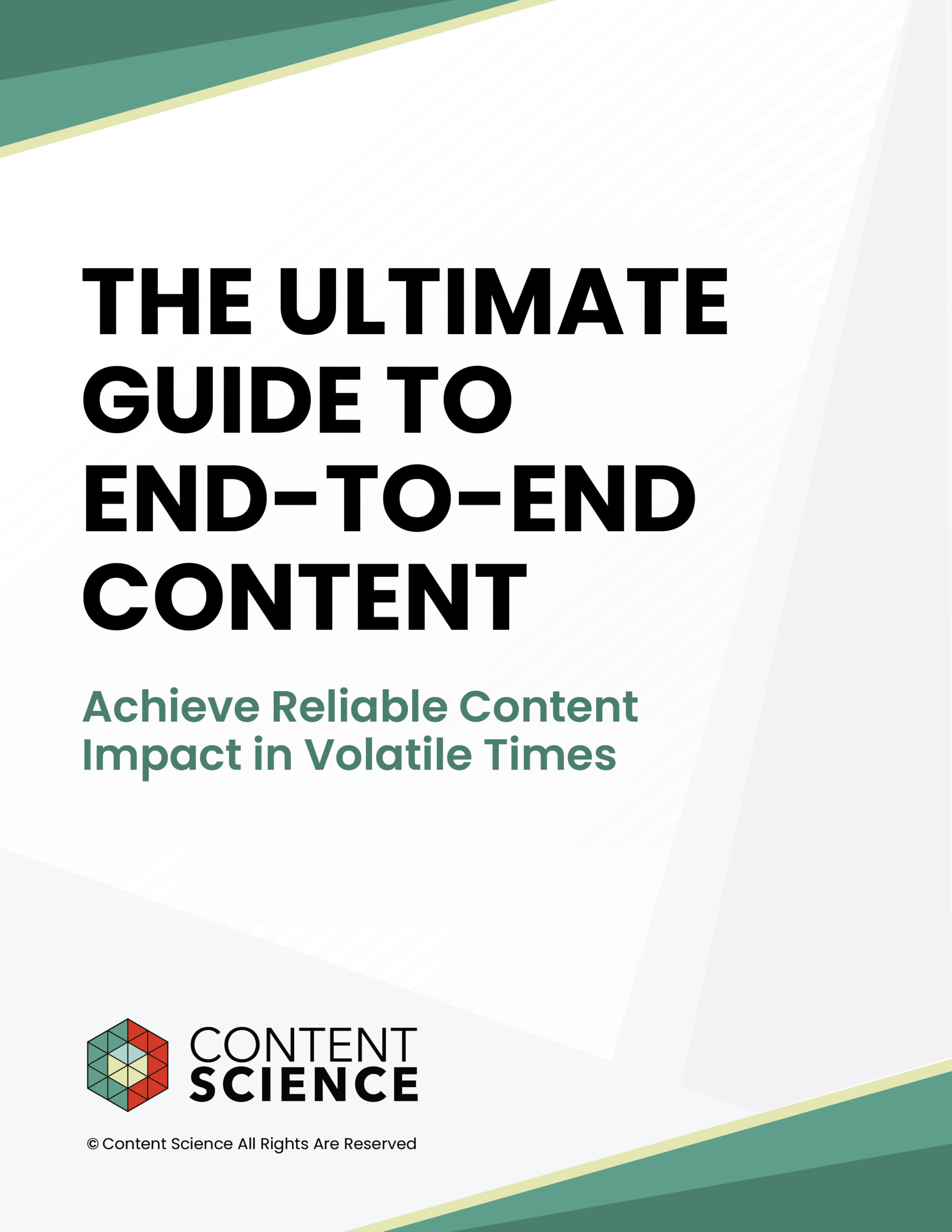
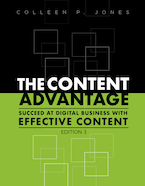
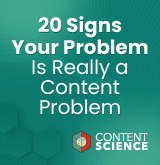
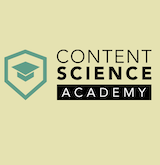
Comments
We invite you to share your perspective in a constructive way. To comment, please sign in or register. Our moderating team will review all comments and may edit them for clarity. Our team also may delete comments that are off-topic or disrespectful. All postings become the property of
Content Science Review.